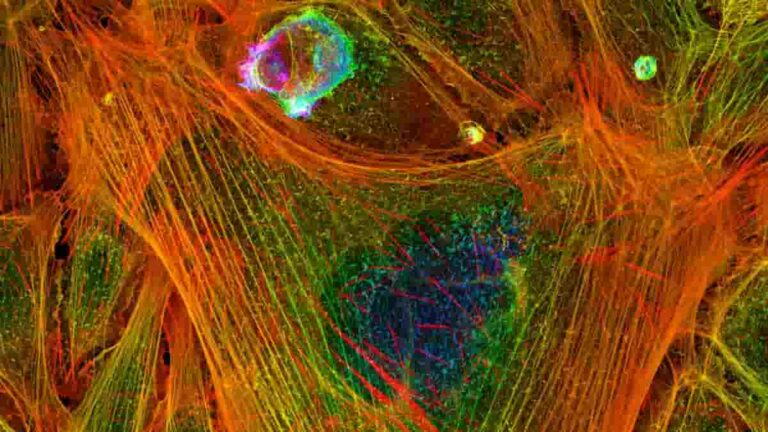Thank the little “muscles” in your neurons for allowing you to remember where you live, what your friends and family look like and a lot more. New research at Rice University suggests actin filaments that control the shape of neuron cells may also be the key to the molecular machinery that forms and stores long-term…
What Is Krabbe Disease?
Krabbe disease is a rare, inherited metabolic disorder in which harmful amounts of lipids (fatty materials such as oils and waxes) build up in various cells and tissues in the body and destroys brain cells. Krabbe disease, also known as globoid cell leukodystrophy, is characterized by the presence of globoid cells (cells that have more…
What Is Gene Therapy?
Gene therapy is an experimental technique that uses genes to treat or prevent disease. In the future, this technique may allow doctors to treat a disorder by inserting a gene into a patient’s cells instead of using drugs or surgery. Researchers are testing several approaches to gene therapy, including: Replacing a mutated gene that causes…
Could the Smell of Sweat Make Your Happy?
We may be able to communicate positive emotions like happiness through the smell of our sweat, says new research published recently in Psychological Science. The study indicates that we produce chemical compounds, or chemosignals when we experience happiness that are detectable by others who smell our sweat. While earlier research has demonstrated that negative emotions related…
Dysfunctional Endosomes Are Early Neurodegeneration Sign
Abnormalities in a protein that helps transport and sort materials inside cells are linked to axonal dysfunction and degeneration of neurons in Alzheimer’s disease (AD) and Down syndrome (DS), researchers at University of California, San Diego School of Medicine say. Said Chengbiao Wu, PhD, associate professor in the Department of Neurosciences at UC San Diego…
Facial Perception Impairment In Alzheimer’s Disease
Alzheimer’s not only steals people’s memories but also their ability to recognize faces, which widens the chasm between people with this disease and their loved ones. A recent study has demonstrated that, beyond causing memory problems, Alzheimer’s disease also impairs visual face perception. The finding may help families better understand their loved one’s inevitable difficulties…
Slow Wave Sleep May Help Memory Consolidation
There is an existing body of evidence suggesting that sleep, which constitutes about a third of our lives, is vital for learning as well as formation of long-term memories. But exactly how such memory is formed is not well understood and remains, despite considerable research, a central question of inquiry in neuroscience. This week, University…
Peripheral Neuropathy Underlying Mechanism Identified
Recent research identifying the underlying mechanisms of peripheral neuropathy, or nerve damage, has raised the prospect that drug therapies can be developed for the treatment of this condition, which causes pain, numbness and/or tingling in the hands and feet. The work, by Sandra Rieger, Ph.D., of the MDI Biological Laboratory, was published March 28 in…
Why Did Laughter Evolve? Evolutionary Origins of Laughing
Laughter plays a crucial role in every culture across the world. But it’s not clear why laughter exists. While it is evidently an inherently social phenomenon – people are up to 30 times more likely to laugh in a group than when alone – laughter’s function as a form of communication remains mysterious. A new…

